Every day we are exposed to harmful chemicals, such as pollutants, preservatives or additives of various kinds.
For example, there are studies that indicate that an average person applies between 85 and 168 different chemicals to their skin every day. There is also research that shows a link between diseases and toxins. Chemicals and environmental toxins can disrupt both hormone balance and fertility as well as the immune system.
However, there are very many experts and studies as well as many different theories about what is harmful and what is not. However, it is clear that there is every reason to be chemically savvy and read up.
A study to download can be found here:
https://www.researchgate.net/signup.SignUpInstitution.html
This thing with chemicals is difficult and not even the researchers agree on all points, besides, "everything" is chemical. Simple things like ordinary water and table salt are also chemicals. Dihydrogen oxide sounds very chemical but is ordinary water, sodium chlorideNaCl is ordinary table salt, if we don't have a clue, even this can sound scary and remember that everything can be overdosed, even water can be too much for the human body if it is ingested too quickly in too large a quantity.
Natural is good but remember that too much and too strong can also be "dangerous". It is, for example, very common to react allergically even to natural things. A horse or a peanut can make an allergic person very sick even though a horse is very natural.
EEssential oils contain terpenes,hydrocarbon compounds that are a dominant component in essential oils such asfor example oils from orange peel, or pine. When terpenes react with the oxygen in the air, antimicrobial substances are formed and this form is very allergenic to humans.
Therefore, it is important to read up and think carefully. A good rule of thumb is to choose as simple as possible. If there is an alternative with a long and complicated list of ingredients and one with fewer and simpler ingredients, it is usually better to choose the simple one.Do not overdose on anything and read up.
We cannot possibly avoid all superfluous chemicals, but we can, with simple means and in stages, reduce the number of unnecessary chemicals by reading up and changing how we, for example, clean at home. Cleaning in particular is a good and fairly simple part to change.
Here are some simple tips on how to reduce chemicals in cleaning at home.
Soap is a type of soap that contains simple biodegradable surfactants. Surfactants are needed to break up and remove dirt and grease. Imagine you have a plate that you have eaten sausage and macaroni on. You know how the surface of the plate feels then! Greasy and dirty. If you just rinse or wipe the plate, it will still feel greasy and dirty. If, on the other hand, you put a little dishwashing detergent and warm water on it, the plate will quickly become clean again and the grease will disappear - That's what a surfactant does!
The same effect is achieved when you have a little soap in the cleaning bucket or on a cleaning sponge, the greasy and dirty is dissolved. All greasy dirt and all dirt that comes from humans, animals or nature can be removed with soap, warm water and a brush/cloth/sponge.
If you think about it, a lot of dirt falls under this category, in fact most of it.
Exceptions are limescale and rust oxidation, precipitates from metals, to remove this you need something acidic like vinegar, acetic acid or citric acid but it doesn't have to be more advanced than that.
What you don't need is, for example, air fresheners - think about it for a while! Does it really purify the air if you add perfume?
- No, of course it doesn't!
Instead of spraying "air freshener" in the rooms, think about what is causing you to feel you need such a product?
Something is causing the bad smell you want to get rid of. Instead, choose to find the source and clean it away.Clean doesn't smelland covering up bad smells with perfumes is not a solution.
Fabric softener, stain remover, drain cleaner, oven cleaner are other examples of products that can be replaced with simple natural products.
None of this is a complete solution to exclude unnecessary chemicals in everyday life BUT it is part of reducing the number of unnecessary chemicals in everyday life and a very good start to a proper chemical reduction.
To be sure that your kitchen surfaces are really clean and have no residue of bacteria left, our kitchen soap is completely free of perfume so you do not mask potential bad odor. It is therefore particularly suitable for cleaning kitchen counters, refrigerators, cutting boards and sinks. Cleaning with unscented products without strong chemicals is extra important in the kitchen where you cook, handle and store food.
You can find Västerbottenssåpa kitchen cleaning kit here.


__________________________________________________________________________
Questions and Answers
Why is it important to avoid strong chemicals in the home?
Strong chemicals can negatively affect our health by disrupting hormone balance, fertility and the immune system. Using natural and simple products reduces the risk of these health effects.
How can soap be used as a natural cleaning agent?
Soap contains biodegradable surfactants that effectively break up dirt and grease. It can be used in the cleaning bucket or on a cleaning sponge to clean surfaces and objects in the home in an environmentally friendly way.
What alternatives are there to common chemical-based cleaning products?
Instead of chemical-based products such as air fresheners, fabric softeners, stain removers and drain cleaners, you can use natural products such as vinegar,acetic acid, citric acid andunscented soap. These are effective and safe alternatives for chemical-reduced cleaning.
Explore Västerbottenssåpa products and clean naturally and non-toxic!

